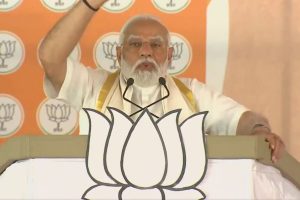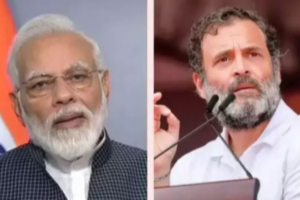This year, when we are celebrating 70 years of our independence, it is also the time when 70 years have passed since the tragic Partition that created havoc in the lives of people who became homeless and witnessed unprecedented violence that tore apart families. For a long time, people would remember the Partition with pain and horror and talk about it to their next generations, in both countries.
As time is a great healer, the shock and suffering has perhaps, begun fading somewhat and the beautiful memories of the good times are beginning to resurface. Bridge Across the Rivers:Partition Memories from the Two Punjabs, a book brought out recently by Niyogi Books, is a collection of stories by authors from both countries (translated into English from Punjabi and Urdu) that takes us on a journey of warmth and affection, of love and attachment in the context of the division of the country and the terror and bloodshed it brought in its wake.
Edited by Jasbir Jain and Tripti Jain, who witnessed the partition as children, the book has 16 moving tales and is dedicated “to the faith of those who build bridges and cross over in friendship”. In the introduction titled “Partition, Dislocated Homes and Homelands”, the editors write that “in their placing, the narratives gradually become a narrative of expectation, hope and harmony, its sudden disruption, flight and violence over and over again they raise the question: how do we remember the past.”
There is one story — Gurbachan Singh Bhullar’s“Fattu the Bard” (Translated by Hina Nandrajog) —that expresses the experience of returning home after the Partition as Fattu comes back to his native village from Pakistan to settle down there again. He lost a son and daughter in the Partition but his sense of belonging struggles to absorb those losses.
Many of the stories are based on personal experiences. Some writers admit that they are writing about their own memories. Mohinder Singh Sarna’s story,“A Defender of Humanity” (translated by Navtej Sarna) talks about a Pathan driver who stakes his own life to ferry his passengers across the border, from Rawalpindi to Srinagar. Violence and survival, evacuation and rehabilitation are the issues dealt by these stories, all of which have the same intensity that is associated with the experience of the Partition and its memories.
Baldev Singh’s“Come, Sister Fatima” (translated by Hina Nandrajog) is a very powerful story in which an old woman holds on to her friend’s spinning wheel that was handed over to her during the Partition , indifferent to the slim chance of ever restoring it to her. She tells her son about Fatima, her friend.
“I met her in my dream yesterday. No one can stop that, can they?” In several other stories in the anthology, there is an inevitable return to the past, seeking in it moments of shared happiness and belonging .Surjit Sarna’s two stories “The Distance to Lahore” (Translated by Jasbir Jain) and “A Bunch of Narcissus” (translated by Tripti Jain) are about the years 1946 and 1947 and graphically portray the creeping in of a sense of desolation on the city of Lahore as friends and lovers are pulled part, as lives are dislocated, dreams die and flowers fade.
“A Bunch of Narcissus” is a narrative of disappointed love and a romantic relationship cut short. Keki Dauwalla’s “Black Waters, Dark Well” crosses over from the present to the past and then back again. It paints a dark moment in the country’s Partition when young love is sacrificed. The lovers panic due to the violence and are driven to death by jumping into a well.
Tahira Iqbal’s “One’s Own Country” (translated byTripti Jain) describes fond memories of the pre-Partition years as well as the sense of loss of one’s motherland. Remembrance, regret, guilt and nostalgia are the emotions touched by this story as well as by Sanwal Dhami’s “Ointment” (translated by Tripti Jain) which is the last story in the collection.
In “Ointment”, we see Fazal returning from Lahore in Pakistan to his village Nauru Nangal for a few days, many years after the Partition. The love and respect showered on him by his old friends and neighbours overwhelm him. It was Karamdin, Fazal’s father, who was known for an ointment which could heal the oldest and deepest wound (a formula that had come down the generations).
When Fazal comes to visit India, he brings a boxful of this marham as a gift for the villagers. When he leaves for Lahore, he says “May Allah save everyone from further tragedy. May no one be inflicted with wounds. And, if they are, then this ointment would surely heal their wounds.
I have given the prescription of this ointment to Amolak. Farewell.” Each story pulls at our hearts; the emotions described are strong and deep. For those who remember the Partition, this is, no doubt, a cathartic experience. But even for others, it evokes emotions that are eternal. Pity, fear, sympathy, longing, nostalgia, terror and the tendency to look back at the past — all of these hold the stories close together and keep us gripped to this wealth of memories. They are beautiful as well as ugly.











